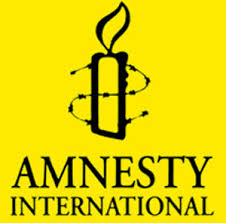Protection of Human Rights Must Go Beyond Fine Words

The Iranian authorities’ decision to withhold their position on all the recommendations made during the country’s second Universal Periodic Review (UPR) until the next session of the UN Human Rights Council in March 2015 should not be another delaying tactics to avoid criticism, said Amnesty International. The authorities should rather use this time to go beyond rosy proclamations and take concrete steps to improve their abysmal human rights record.
On 31 October 2014, a high-profile Iranian delegation, headed by Mohammad Javad Larijani, the head of Iran’s High Council for Human Rights, part of the country’s judiciary, appeared before the UN Human Rights Council to defend Iran’s human rights record since the country’s first UPR in February 2010. The delegation presented a distorted picture of the human rights situation in Iran, which bore little resemblance to the realities on the ground. Issues of concern for Amnesty International include the claims by the delegation that Iran strictly adheres to international fair trial standards; fully respects freedoms of expression, association and assembly; guarantees full equality between men and women in law and practice; and ensures the enjoyment of human rights by members of Iran’s ethnic and religious minorities.
Amnesty International welcomes the resolve by UN Member States participating in the examination of Iran to not allow themselves to be sidetracked by Iran’s rhetorical games, and to insist on taking the Iranian authorities to task for their failure to implement their human rights commitments. In stark contrast to the fiction presented by Iran, the review session pointed to a dire state of human rights, with an ever increasing number of executions, including juveniles put to death and public executions; widespread torture and other cruel, inhumane and degrading treatments or punishments committed with impunity; violations of international fair trial standards; entrenched discrimination on the basis of gender, religious belief, ethnic identity, sexual orientation and gender identity; and restrictions on freedoms of expression, association and assembly.
Concerned states were not limited to members of the Western European and Others Group (WEOG), as suggested by the Iranian delegation. Countries from Africa and Latin America also called on Iran to abandon the practice of public executions, establish an immediate moratorium on all executions, as a first step toward its full abolition, prohibit the death penalty for juvenile offenders, and ratify the Second Optional Protocol to the International Covenant on Civil and Political Rights. A similar geographical diversity was evident when it came to issues relating to discrimination and violence against women. States across the world questioned Iran’s failure to amend its discriminatory laws against women, including in the areas of marriage, divorce, child custody, inheritance, and citizenship; to investigate, prohibit and punish acts of violence against girls and women, including domestic and sexual violence; and to ratify the Convention on the Elimination of All Forms of Discrimination against Women.
Amnesty International also welcomes the precise recommendations to end violence and discrimination against lesbian, gay, bisexual and transgender people; to decriminalize consensual same-sex relations between adults; and to outlaw forced sterilization and harmful practices aimed at changing individuals’ sexual orientation or gender identity.
Discriminatory laws and practices against ethnic and religious minorities also came under the spotlight. Iran received numerous recommendations to lift restrictions placed on freedom of religion and belief; to confront hate speech; and to ensure that members of ethnic and religious minorities enjoy their human rights without discrimination, including in the areas of education, employment, and full and equal participation in public and private life.
States further called on Iran to release immediately and unconditionally journalists, human rights defenders, lawyers, and others detained for peacefully exercising the rights to freedom of expression, association and peaceful assembly; and provide guarantees for the right to freedom of expression and freedom of the media. Iran, however, flatly denied exerting control and censorship on the press and imprisoning any one for these reasons, maintaining that reported cases relate to espionage and other security-related offences.
Iran’s commitment to the UPR will ring hollow for as long as the Iranian authorities continue to deny well-established patterns of serious and systematic human rights violations. As Iranian authorities take away all the recommendations received during the UPR for further consideration, Amnesty International calls on Iran to reconsider the dismissive stance taken during the examination and match its fine words with decisive measures to guarantee the promotion, protection and defense of human rights.
Additional Information
In addition to distorting and misrepresenting their human rights record, the Iranian authorities also tried to deflect attention off their poor record by diluting international human rights standards or defying them outright. For instance, on the issue of the use of the death penalty for drug-related offences, the authorities adopted a narrative of “security and anti-drug terrorism” so as to defy well-established principles of international law banning the application of the death penalty for acts that do not meet the threshold of the “most serious crimes”.
In response to concerns about the criminalization of same-sex sexual relations between consenting adults and the infliction of torture and other ill-treatment on members of the gay, lesbian and transgender community, the Iranian authorities used “culture” as an excuse to justify discrimination, torture and other ill-treatment against lesbian, gay, bisexual and transgender individuals.
At times the authorities’ replies to major human rights concerns were at best dismissive. This was illustrated clearly when the authorities were questioned about the continued exclusion of Baha’i students from higher education institutes and the extremely low age of marriage for girls in the country. Rather than address these concerns raised by other states, the authorities instead provided off-topic answers about the refusal of European countries to issue Iranian students study visas or about the average age of marriage having increased to mid-twenties.